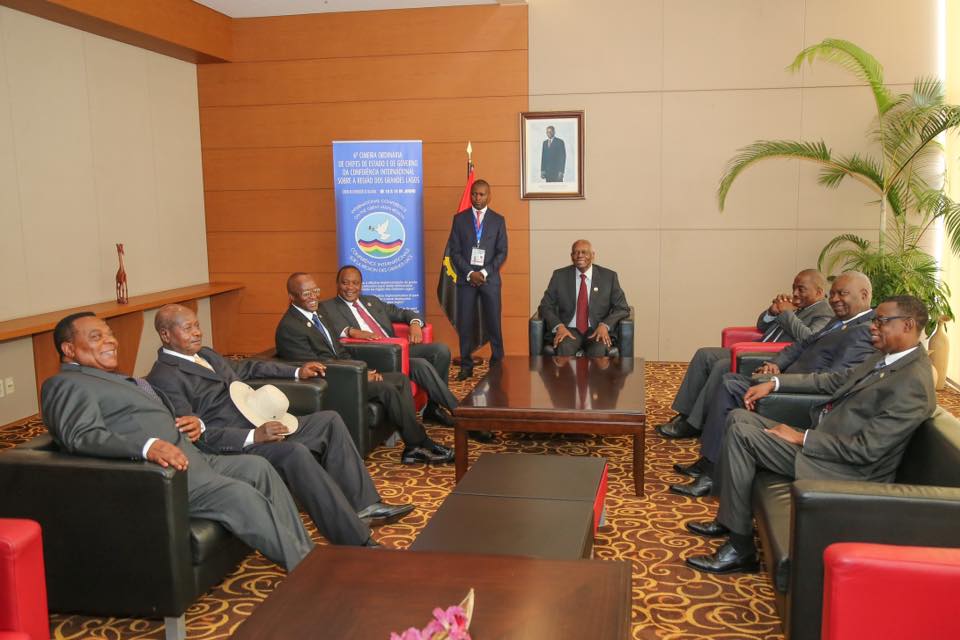
Luanda, Angola | AFP |
Leaders of the Great Lakes region called Thursday for the UN peacekeeping force in strife-torn DR Congo to be bolstered, as fears rise of an upsurge in violence linked to delayed presidential polls.
At the end of two-day talks, they called for more contributions to the UN mission MONUSCO from members countries of the International Conference on the Great Lakes Region (ICGLR) and the Southern African Development Community (SADC) blocs.
The goal is to “strengthen the operations” of MONUSCO in fighting the “negative forces” in the Democratic Republic of the Congo, said a statement after talks in the Angolan capital Luanda.
The UN Organization Stabilization Mission in DR Congo (MONUSCO) has more than 20,000 troops in the country protecting civilians and disarming dozens of rebel and splinter groups after two decades of conflict in the east of the country.
The mission’s troops and police personnel are drawn from over 50 countries including regional nations.
At the end of the summit, presidents Jose Eduardo dos Santos of Angola, Joseph Kabila of the DR Congo and Denis Sassou Nguesso of Congo Brazzaville met in private, a source close to the presidency told AFP.
Luanda and Brazzaville “pledged to send, before the end of Joseph Kabila’s tenure (December 20) additional military” to boost the UN peacekeeping mission, said the source.
The DR Congo is mired in crisis and political tensions have been mounting with the delay of presidential elections which were due to be held this year.
DR Congo authorities and fringe opposition groups last week reached a deal to postpone the elections in the hope it will lead to a credible vote.
But the main opposition has rejected the agreement that would effectively keep Kabila in power until the election in April 2018.
The constitution requires that Kabila, in power since 2001, steps down in December.
Last week the UN said it was moving hundreds of peacekeepers from east of the country to Kinshasa to help deal with a possible outbreak of violence over the postponement of the presidential vote.
 The Independent Uganda: You get the Truth we Pay the Price
The Independent Uganda: You get the Truth we Pay the Price



